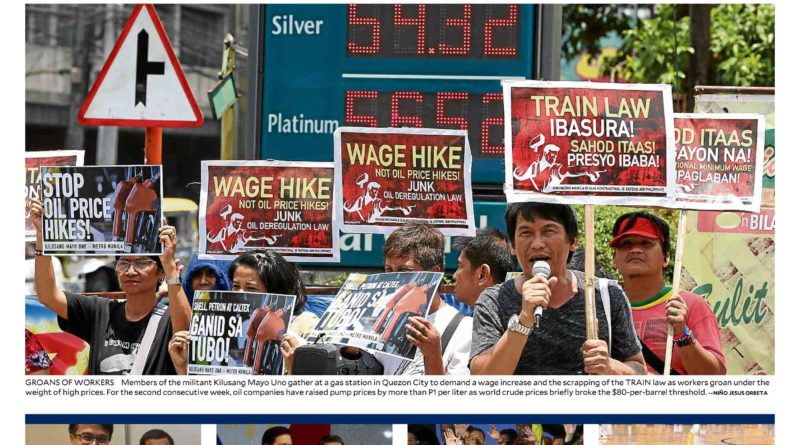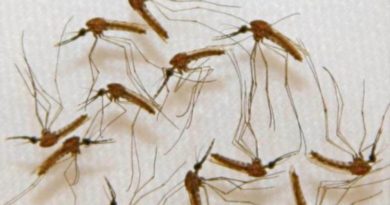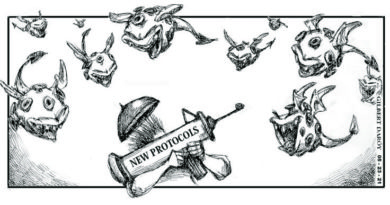ASEANEWS HEADLINES: ‘PALACE CONCERNED BUT NOT THREATENED’
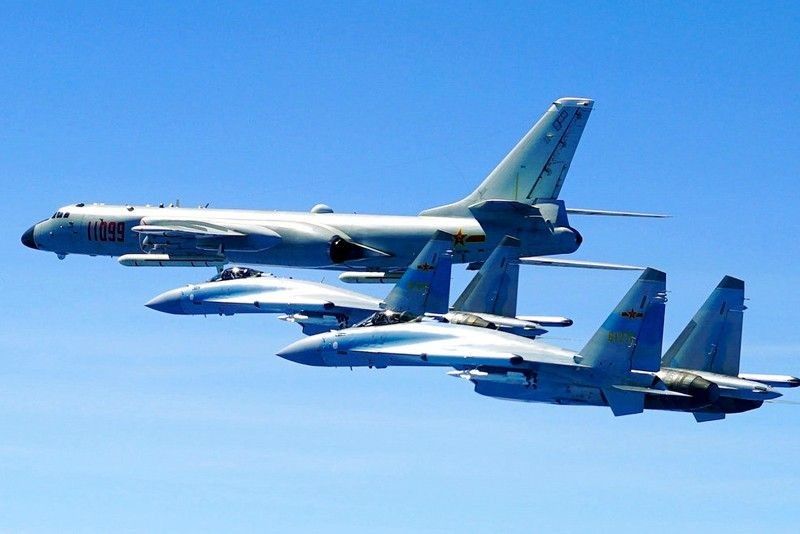
“Right now, the President does not see any immediate threat. As I said, we do not consider China to be a threat to our security right now because of our newfound friendship with China,” presidential spokesman Harry Roque said. Han Chao/Xinhua via AP
MANILA, Philippines — Malacañang yesterday expressed “serious concern” over the landing of long-range Chinese bombers on one of the man-made islands in the South China Sea but clarified it does not see the deployment as an immediate threat to the Philippines.
“Even if we don’t feel that China is a security threat to us, for as long as there are weapons there, there could be mistakes in the discharge of these weapons and any threat of the use of force in one of the world’s busiest sea lanes, which happens also to be the sea lane where our oil supply passes through and bulk of our exports and imports pass through, is a reason for concern to us,” presidential spokesman Harry Roque said in a press briefing.
The Department of Foreign Affairs (DFA) said meanwhile it is taking an “appropriate” but unspecified “diplomatic action” to protect the country’s sovereignty in the West Philippine Sea but did not mention China or the latter’s deployment of heavy bombers.
“We take note of the reports that appeared and we express our serious concerns anew on its impact on constructive efforts to maintain peace and stability in the region,” he added.
.
“Right now, the President does not see any immediate threat. As I said, we do not consider China to be a threat to our security right now because of our newfound friendship with China,” Roque said.
He said the Philippines adopted the declaration issued by the Association of Southeast Asian Nations (ASEAN) last month in Singapore, which stressed the importance of non-militarization and self-restraint in the South China Sea. But he expressed belief there is no need for the Philippines to come up with its own statement on the deployment.
“That’s a common statement of ASEAN and we voted for the statement. So that’s a collective stand of ASEAN and I think in dealing with China, it’s best that we speak as one as ASEAN. So that’s why we are reiterating the ASEAN statement,” Roque said.
“Right now it appears unnecessary to issue an independent statement because the entire region, at least the 10 member states of ASEAN have agreed on that statement,” he added.
China claims about 90 percent of South China Sea and West Philippine Sea. Vietnam, Malaysia, Brunei and Taiwan also have overlapping claims in the resource-rich waters. An international arbitral court invalidated China’s claim and reaffirmed the Philippines’ maritime entitlements in 2016, but Beijing vowed to ignore the ruling.
Last Friday, Chinese media reported that Beijing had sent long-range bombers to Woody Island in the Paracels in the South China Sea, an area also being claimed by Vietnam and Taiwan. The Philippines is within range of the Chinese bombers, experts said.
The Duterte administration, however, believes that the deployment of Chinese bombers does not pose an immediate threat to the Philippines because of its improved ties with China.
Critics have accused Duterte of selling out to China in exchange for Chinese development and military aid.
Duterte has denied this, saying he would not give up even an inch of the Philippines’ territory to China. He has also blamed the United States and his predecessor former president Benigno Aquino III for China’s military buildup, saying they did nothing to stop the construction projects in the disputed areas.
Ask to comment on calls for Duterte to convene the National Security Council to discuss China’s activities, Roque said: “Well it’s the President’s call really and right now the President does not see any immediate threat.”
In the same press briefing, Roque said the recent meeting of Philippine and American officials in Hawaii should prove that the Duterte administration is not abandoning traditional allies.
Philippine officials led by Executive Secretary Salvador Medialdea met with US Pacific Command (PACOM) chief Admiral Harry Harris Jr. last Friday to discuss improving diplomatic ties between Washington and Manila.
“I can only surmise that the visit is intended to reassure the United States that while we are pursuing an independent foreign policy, we have not abandoned our traditional ally the United States, that it’s probably to reassure that we value the continued friendship and security cooperation that we have had with the United States throughout the years,” Roque said.
Roque clarified that China’s military buildup cannot be used as basis to invoke the Mutual Defense Treaty with the US.
“In the absence of an actual attack, the Mutual Defense Treaty is inapplicable because there should be an actual armed attack on the Philippine territory or any of the islands,” Roque said. “If it’s just a build up, it cannot serve as a basis,” he added.
Roque also noted that the US does not meddle in maritime disputes of other countries.
In a statement, the DFA stressed the administration’s commitment to protect the country’s sovereignty.
“We are taking the appropriate diplomatic action necessary to protect our claims and will continue to do so in the future. We reiterate our commitment to protect every single inch of our territory and areas which we have sovereign rights over,” the DFA said. It added it is “in close coordination” with other departments and agencies in “closely monitoring developments” in the West Philippine Sea and the South China Sea.
On allegations that the government is silent on China’s provocative acts, the DFA said “it is not our policy to publicize every action taken by the Philippine government whenever there are reported developments taking place in the West Philippine Sea and the South China Sea.”
It said the Duterte administration’s rapport with China has achieved much for the Philippines. “Moving forward, we are taking a different approach to avoid any drawbacks and challenges,” the statement added.
“In professionally and prudently advancing our interests in the West Philippine Sea and the South China Sea, we will always be guided by our patriotic duty to protect the Filipino people and defend our sovereignty,” the DFA said.
Former foreign affairs chief Albert del Rosario, who spearheaded a legal challenge to China’s vast territorial claims before the Permanent Court of Arbitration in The Hague, has urged Filipinos to convince Duterte “to be more proactive and assertive in defending what is ours.”
A survey, he said, has shown that most Filipinos want the Philippines to assert its sovereign rights upheld by the 2016 arbitration ruling.
“We are opposed to war, as we should be,” Del Rosario said. “But if threatened by the use of force, we should be ready to inflict, at the very least, a bloody nose on any attacker who is out to harm us.”
“Why are we so timid in the face of China’s missile and bomber diplomacy?” asked former national security adviser Roilo Golez. “The world is watching and our response, hat in hand, is a vague ‘diplomatic action.’”
“Asserting our sovereign rights does not mean we intend to go to war with China, and end up losing. It simply means we are telling China and the entire world that we have sovereign rights in those waters under international law. It means we have not surrendered those rights,” Renato Reyes, secretary-general of the militant Bagong Alyansang Makabayan said. – With Rhodina Villanueva / Pia Lee-Brago, Alexis Romero (The Philippine Star) – May 22, 2018 – 12:00am
ASEANEWS HEADLINES:
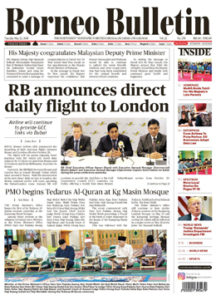
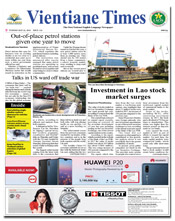


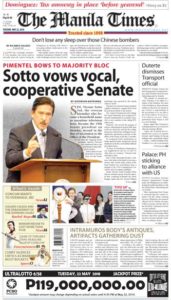
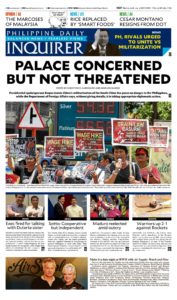

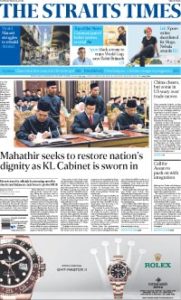

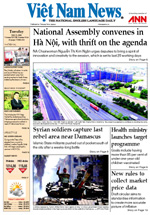
All photographs, news, editorials, opinions, information, data, others have been taken from the Internet ..aseanews.net | [email protected] / For comments, Email to : Aseanews.Net | [email protected] | Contributor:-

